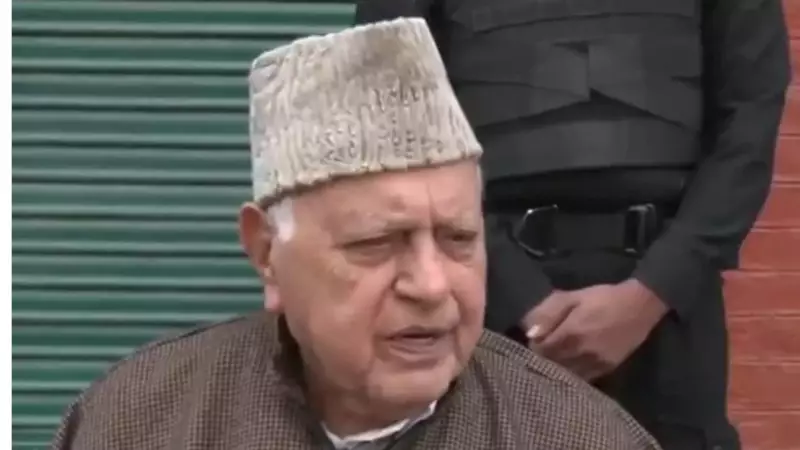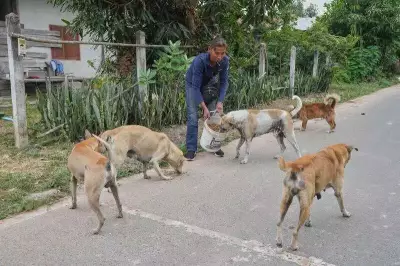
Senior political leader and Jammu & Kashmir National Conference chief Farooq Abdullah has made a significant intervention on India-Pakistan relations, speaking out in the aftermath of two devastating explosions that rocked the nation.
Blasts Trigger Security Concerns
The context for Abdullah's remarks comes from two separate incidents that have raised serious security questions. The explosion at Nowgam Police Station in Jammu and Kashmir resulted in nine fatalities and 32 injuries, causing substantial damage to the police station and nearby residential buildings. This tragedy occurred shortly after the blast near Delhi's historic Red Fort, which claimed 12 lives.
In an exclusive interview with ANI on Saturday, the former Jammu and Kashmir chief minister expressed deep concern about the potential implications of these incidents on regional stability and cross-border relations.
Operation Sindoor Reference and Diplomatic Appeal
Abdullah specifically referenced Operation Sindoor, though he expressed hope that such military action would not be repeated. "I hope no such thing will happen. Nothing came out of it. Our 18 people died. Our borders were compromised," he stated, drawing from historical context.
The veteran politician emphasized diplomatic engagement as the only sustainable path forward, invoking the wisdom of former Prime Minister Atal Bihari Vajpayee. "I hope both nations improve their relations. That is the only way. I want to repeat what Vajpayee Ji said, friends can be changed, but neighbours cannot," Abdullah remarked, underscoring the geographical reality that makes peaceful coexistence imperative.
Demand for Thorough Investigation
Turning to the Nowgam tragedy, Abdullah called for an extensive independent inquiry into the incident that occurred while police were handling an explosive device within the station. He suggested that improper handling of explosives potentially led to the devastating outcome.
In his earlier comments from Srinagar, Abdullah had expressed concern about the handling of explosive materials by local authorities. "This is our mistake, those who understand this explosive better, we should have talked to them first about how to deal with it instead of trying to handle it ourselves," he observed, pointing to the tragic consequences of the approach taken.
The JKNC leader also addressed the wider social impact of these security incidents, particularly the climate of distrust developing toward Kashmiri residents across India following the Delhi blast. "We haven't yet come out of the crisis in Delhi where fingers are being pointed at every Kashmiri," he noted, expressing frustration about the collective suspicion faced by Kashmiris.
Abdullah posed poignant questions about the circumstances that might drive educated professionals toward extremism. "When will that day come when they will accept that we are Indians and we are not responsible for this? Ask those who are responsible why these doctors had to take this path? What was the reason?"
Emphasizing the need for comprehensive accountability, Abdullah concluded that "there is a need for a thorough investigation and study of this," urging authorities to determine responsibility and implement effective preventive measures for future security.
The Jammu and Kashmir Police continue their investigation into the Nowgam explosion as the region grapples with both the immediate tragedy and its broader implications for security policy and community relations.





